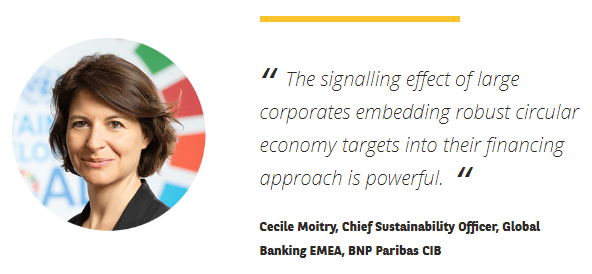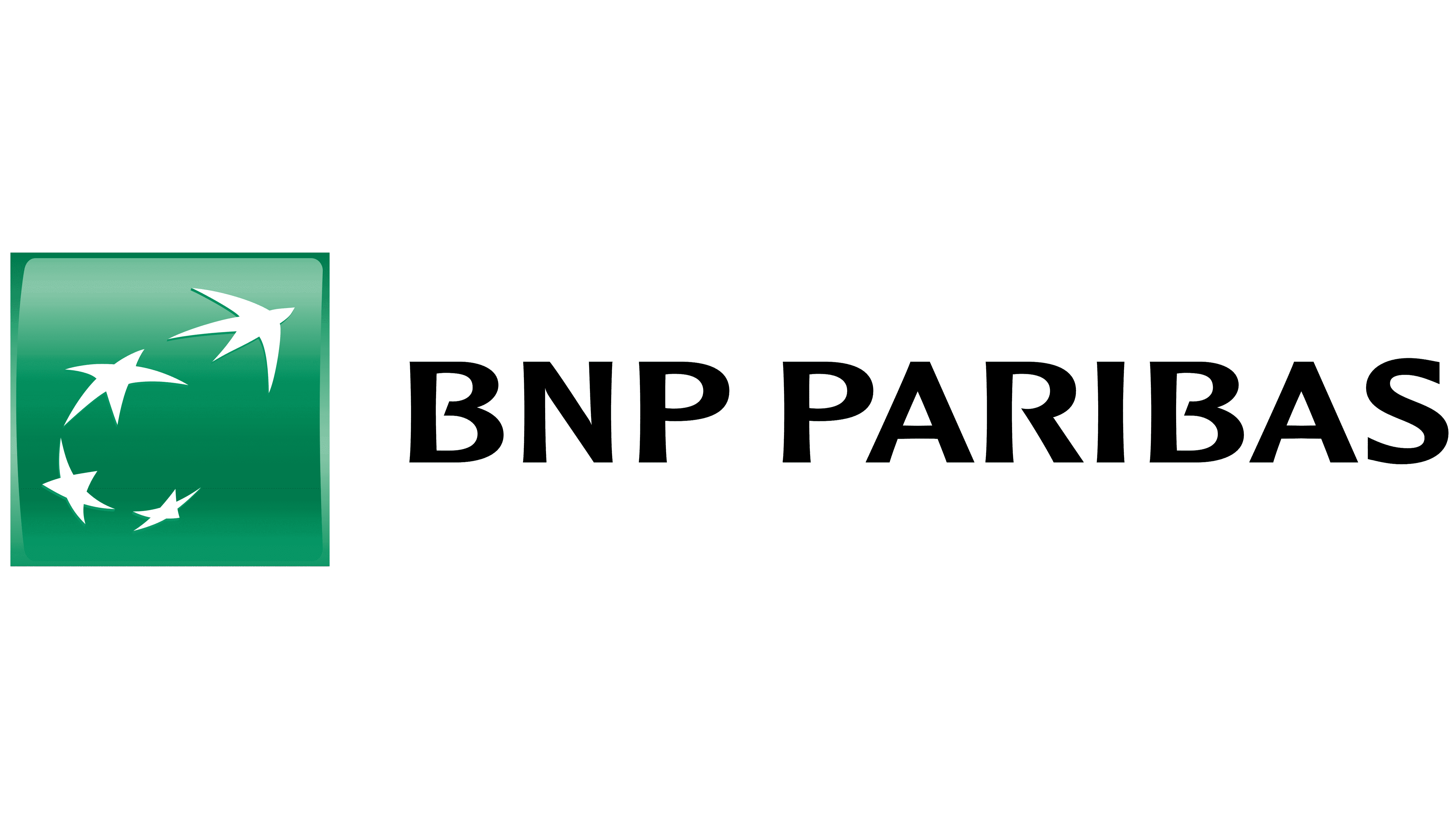Corporates are looking to the debt capital markets to help further incentivise their efforts to reduce, reuse and recycle, and support the transition to a circular economy.
It is widely recognised by policymakers, public institutions and think tanks that moving towards a circular economy is a vital step in tackling the urgent climate crisis, transitioning to a net zero future and ensuring more secure and sustainable supply chains.
The extraction and processing of natural resources are responsible for more than half of global greenhouse gas emissions and over 90% of global biodiversity loss. These stark figures underline the world’s dependence on the linear ‘take-make-dispose’ economic model. Building a circular economy promotes a model of production and consumption that requires a complete change of mindset, processes and design thinking. It involves reducing waste through design, sharing, leasing, reusing, repairing, refurbishing, and recycling existing materials and products as long as possible to extend their lifecycle.
The Ellen MacArthur Foundation, a leading voice on the subject, explains the economic potential: “A circular economy gives us the tools to tackle climate change and biodiversity loss together. It can scale fast across industries to create value and jobs, while increasing the resilience of supply chains and delivering massive economic growth potential, estimated at €1.8 trillion a year in Europe alone.”
Furthermore, in the context of current geo-political uncertainty and significant risks to international supply chains, the circular economy has the potential to build business resilience by promoting local recycling and reducing dependence on long-distance imports.
A supportive regulatory landscape
Consumer demand may push companies to rethink their business models, but it is the changing regulatory landscape that will likely have the greatest ripple effect on corporate behaviour.
In March 2020, the European Commission presented its New Circular Economy Action Plan as part of its Green Deal, including initiatives that span the entire product lifecycle including product design and waste prevention.
The EU Green Deal also includes the rollout of the EU Taxonomy, which requires certain companies to disclose the portion of their activities that qualify as “environmentally sustainable”. The Taxonomy lists the transition to a circular economy as one of its six environmental objectives.
In parallel, the financing opportunity towards a circular economy has experienced significant growth in recent years: the number of public equity funds with a circular economy focus grew tenfold between 2018 and 2020, while the annual issuance of corporate and sovereign bonds with a circular economy focus increased five-fold between year-end 2019 and 2021.
In May 2022, European multi-utility Hera issued a €500m seven-year Green Bond, the first in its sector to be fully aligned with the EU Taxonomy, as fully certified by a Second-Party Opinion (SPO) provider. Among eligible projects, Circular Economy & Pollution Prevention and Control is identified as a key category in Hera’s Green Financing Framework. This includes urban waste collection projects; facilities and plants for the recycling of materials including plastic and glass; and raw materials recycling and recovery or further re-use in the production process. BNP Paribas supported as joint bookrunner and joint ESG structuring advisor.
Tackling food waste in the retail sector
Circular economy strategies to tackle food waste – which is estimated to account for 8 to 10% of global greenhouse gas emissions – include redesigning production and supply chain processes to eliminate waste, reducing carbon footprint by producing closer to consumers, moving away from monoculture and giving the earth time to regenerate between crops. Organic waste could also be recycled as compost or biofuels.
In October 2020, Tesco, supported by BNP Paribas, became one of the first UK retailers to establish a £2.5bn sustainability-linked loan (SLL), whereby the interest rate is linked to Tesco’s Little Helps Plan, which includes KPIs on food waste reduction.
Ahold Delhaize, one of the world’s largest grocery groups, in March 2021 became the first food retailer to embed food waste targets into a sustainability-linked bond (SLB), supporting the company’s strategy to create a low-carbon food system. The inaugural SLB included a key performance indicator (KPI) to reduce food waste by 32% in 2025 from a 2016 baseline.

In April 2022, leading global food retailer Carrefour issued an inaugural €1.5 billion SLB focusing solely on circular economy KPIs. Ambitious sustainability performance targets (SPTs) included reducing food waste by 50% by 2025 (vs 2016), once again underlining investor appetite for action on the circular economy and the important role for finance in adding further incentives to corporate sustainability ambitions.
“The signalling effect of large corporates embedding robust circular economy targets into their financing approach is powerful”, explains Cecile Moitry, Chief Sustainability Officer, Global Banking EMEA at BNP Paribas CIB. “What’s more, we are seeing corporates opt for relatively short term targets, such as 2025; it shows ambition and underlines the real and material commitment of large corporates to build sustainable business models for the future.”
Eliminating plastic by design
Research estimates the natural capital costs of plastic packaging at $40 billion, ranging from the degradation of natural systems, health and wellbeing impacts and contribution to climate change. The New Plastics Economy estimates that by 2050, there will be more plastic than fish in the ocean.
In 2021, global beauty leader L’Oréal issued an inaugural SLB, with a target to recycle or bio-base 50% of the Group’s plastic packaging by 2025, while Marks and Spencer included a target on removing disposable plastic from its portfolio in its £850mn SLL.
These transactions underlined a recent trend in the industry to tap into finance to drive progress using sustainability targets linked to circular economy. In February 2021, fashion giant H&M, supported by BNP Paribas, issued a €500m SLB, which included a target to increase the share of recycled materials used to 30%.
More recently, BNP Paribas, as Joint Global Coordinator, helped Swedish sustaintech company Renewcell sell SEK324 million of new shares through a Primary Accelerated Bookbuild (ABB) in May 2022. Thanks to strong demand for Circulose®, a branded dissolving pulp derived from decomposed cellulose found in cotton and viscose to produce cellulose fibres for textile applications, the company opted to accelerate the expansion of its production capacity, cementing its market leading position in the value chain.
How else does finance support the circular economy?
Going forward, the role of finance in accelerating the circular economy transition will continue to strengthen, as corporates and investors seek to capitalise on new value opportunities across their value chains as well as mitigate and reduce costs from regulatory risks.
Beyond sustainability linked bonds and loans, new asset classes linked to the circular economy, such as the circular economy-based ETF launched by BNP Paribas Asset Management in 2019, will likely continue to emerge, alongside equity financing such as Renewcell’s Primary ABB.
The potential for inter-sector circularity remains a growth area, and increasingly corporates are looking to sector collaborations, as well as driving innovation in materials, in order to scale up circular approaches.
BNP Paribas is committed to supporting the rapid development of the circular economy as part of its aim to finance a carbon-neutral economy by 2050. Find out more:

